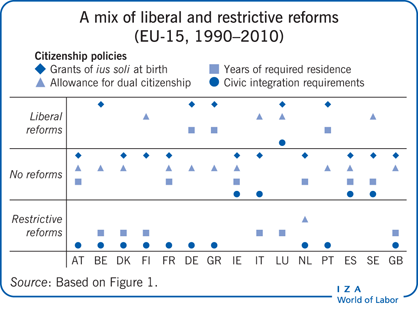Elevator pitch
Citizenship laws are changing in many countries. Although cross-national differences in the laws regulating access to citizenship are today not as large as they were several decades ago, they are still very apparent. Globally, there is convergence over some citizenship policy dimensions, but there is not a general convergence over “liberal” or “restrictive” approaches to citizenship policy. A growing body of research has put forward various comparative measures of citizenship and migrant integration policies. However, selecting the “right” index is a challenging task, and the underlying dynamics of citizenship laws are not easy to interpret as they differ across countries.

Key findings
Pros
Citizenship policies are a crucial determinant of the degree of migrant integration.
The evolution of citizenship laws is key to understanding the dynamics of international migration.
Citizenship policy is at center stage of the political agenda in many countries, which suggests its high relevance to national policy.
Many new measures of citizenship and migrant integration policies have recently been introduced.
Cons
The direction of recent changes in citizenship policies is not definite: there is not a general convergence on liberalism or restrictiveness.
The available measures of citizenship and migrant integration policies cannot be easily interpreted and compared.
Citizenship is only one element of migrant integration.
The relationship between the degree of liberalism in citizenship policies and the size of the international migrant population is positive but not robust.